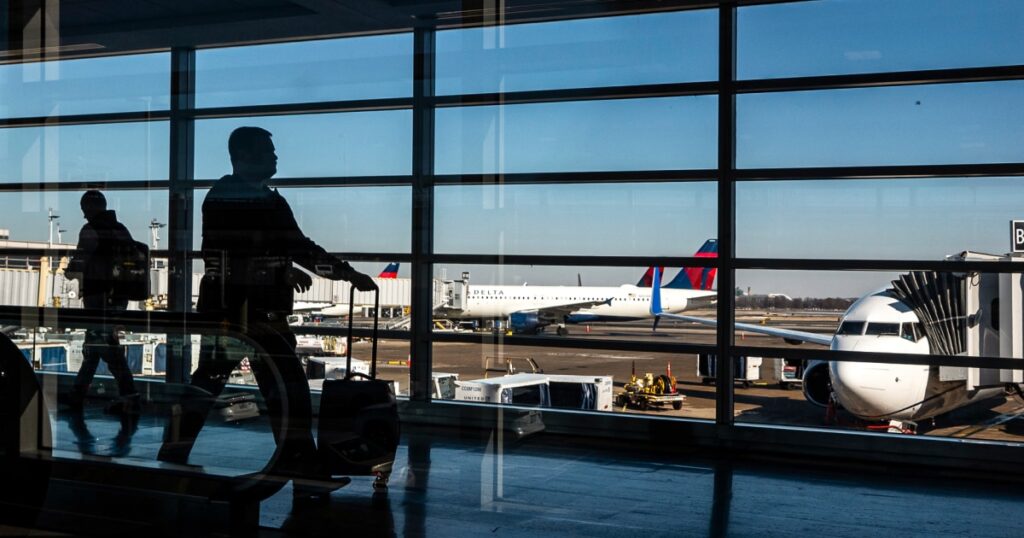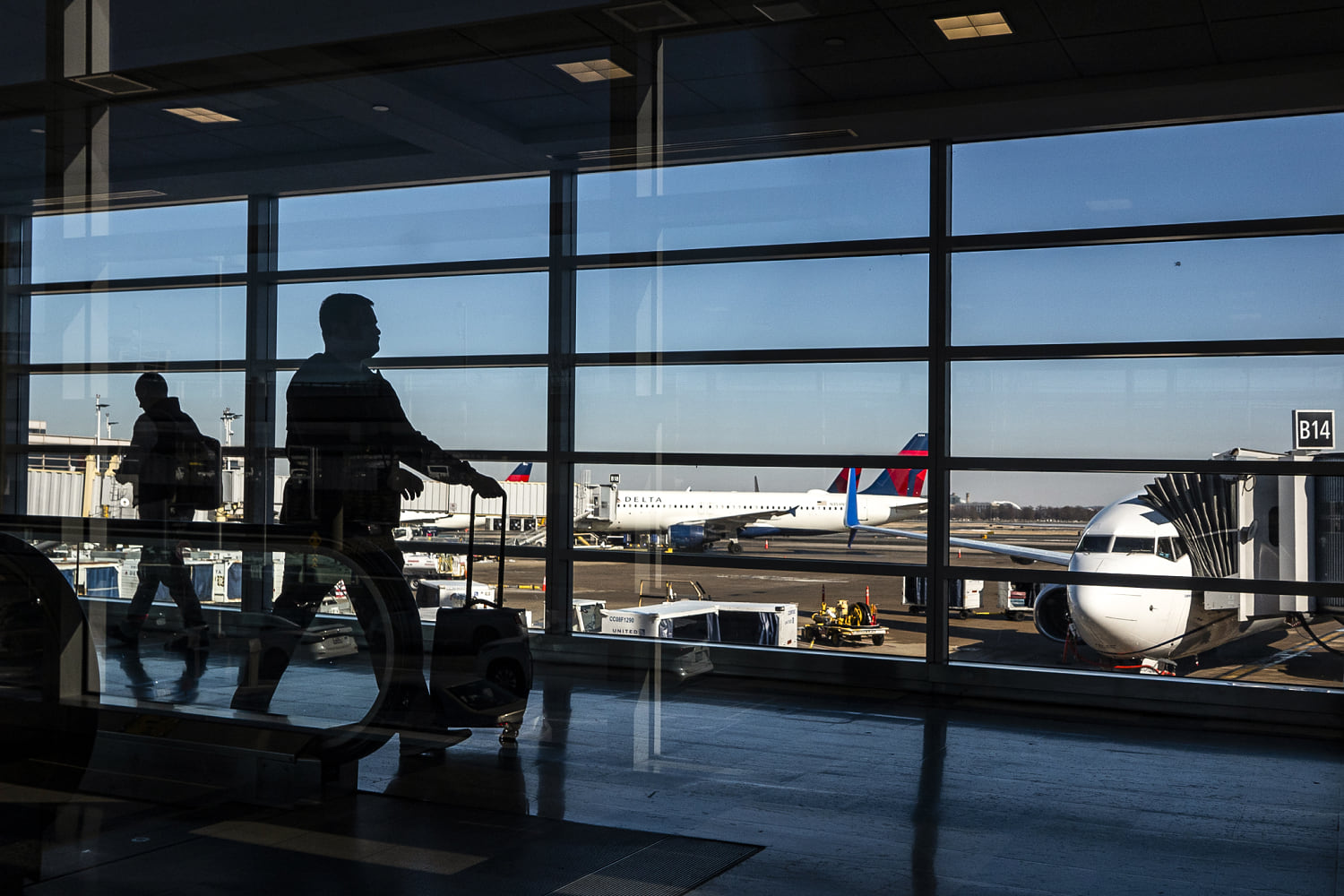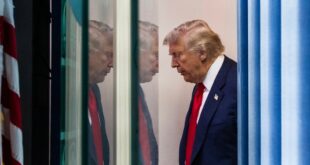

Business travel’s four-year crawl out the pandemic was on track to continue this year, but the U.S. trade war has scrambled that outlook.
“The big word is uncertainty,” said Suzanne Neufang, CEO of the Global Business Travel Association, which had forecast worldwide spending to surge to $1.64 trillion in 2025, up from an expected $1.48 trillion in 2024. Last year’s estimated total, if preliminary data bears out, would mark the first time the sector surpassed its pre-Covid levels.
But pessimism has risen sharply amid President Donald Trump’s deep cuts to the government workforce and a dizzying range of tariffs. Now, about 29% of U.S. corporate travel managers and an equal share abroad expect business travel to decline this year due to government actions, according to a recent GBTA survey. The expected pullbacks could dent business trips by as much as 22%, the group found.
Industry experts caution that souring expectations so far haven’t translated to a collapse in bookings, despite signs of cooler demand.
Business travel “hasn’t fallen off a cliff,” said Jonathan Kletzel, a travel, transportation and logistics leader at the consulting firm PwC. “It is definitely constrained right now, but will people stop traveling? Probably not. If you’re a sales-heavy organization and you’re not out in the market meeting with your clients, your competitors are.”
Still, growing concerns around business travel coincide with corporate leaders’ warnings that U.S. trade policies have injected fresh uncertainty into an economy that just months ago looked on track to build on its strengths.
Delta Air Lines CEO Ed Bastian told CNBC last month that the carrier has had to check its expectations for what was shaping up to be the “best financial year in our history.” Travel demand was growing about 10% at the start of the year but has since slowed, he said, partly due to companies rethinking business trips and cuts to the federal workforce. Other airlines have flagged similar concerns, in some cases adjusting their growth plans or scaling back capacity.
Hotel operators and booking platforms are feeling it, too. Expedia said Friday that U.S. travel demand is cooling. Marriott, Hyatt and Hilton have each reduced their financial forecasts in recent weeks, with the first of those hospitality giants warning investors of “an expected continuation of declines in U.S. government demand.”
Since retaking office, Trump has overseen mass firings and spending reductions across the federal bureaucracy, with many of the changes led by multibillionaire adviser Elon Musk’s Department of Government Efficiency project. While some of the cuts have been halted in court, travel bookers for government contractors have weathered a hectic few months.
Global Travel Associates, a Washington, D.C.-area agency that mainly serves government contractors, said travel sales slid 20% in the first quarter. Several had funding tied to the U.S. Agency for International Development, which the Trump administration gutted this spring, and those accounts are down by 75%-90%, Managing Director Tom Ollinger estimated.
Some of GTA’s clients switched to buying only refundable plane tickets; others canceled scheduled meetings or halted any new travel plans indefinitely, he said. In some cases, those with staffers on long-term assignments overseas were told to drop everything and head back to home base. “The organization provided them one-way tickets to return,” Ollinger said.
“Government groups are not happening,” said Jan Freitag, national director for market analytics at the real estate data firm CoStar. But many business meetings are still taking place, and while individual business travel is a bit softer, “that could just be people not booking as much ahead,” he said.
However, Freitag cautioned, “should [more] tariffs hit and corporations have less sense of where their costs are going, they’ll start looking to cut costs. And the easiest place to control costs is travel and training.”
Navan, a corporate travel management service based in Palo Alto, California, said bookings were up in the first four months of the year from the same period in 2024, despite a slight slowdown in April.
“There’s certainly this feeling of waiting for another shoe to drop,” said Rich Liu, Navan’s CEO of travel. While CEOs are telling him they’re “feeling the squeeze” from new import taxes and other policy moves, “they still have businesses to run,” Liu said.
Individual business travelers seem to be getting anxious. The online travel insurance comparison site Squaremouth saw a 223% annual surge in searches for “cancel for work reasons” travel coverage last month, with purchases of those policies jumping 53%.
“That tells us that travelers are feeling uneasy,” said Squaremouth CEO Rupa Mehta. “In uncertain economic times, they want to understand the cost and value of flexible coverage before committing.”
The current outlook is “a mixed bag,” said Lorraine Sileo, founder of Phocuswright, a global travel research firm. At the moment, “it looks like leisure travel will be impacted more than business travel,” she said, adding that “it will take longer for corporations to feel the pinch of an economic downturn” than it will for vacationers.
“We need to take a wait-and-see approach” to see how business trips fare, Sileo said, “but there are indications that it will be a slow year for all types of travel for the U.S. market in 2025.”
 Latest World Breaking News Online News Portal
Latest World Breaking News Online News Portal






